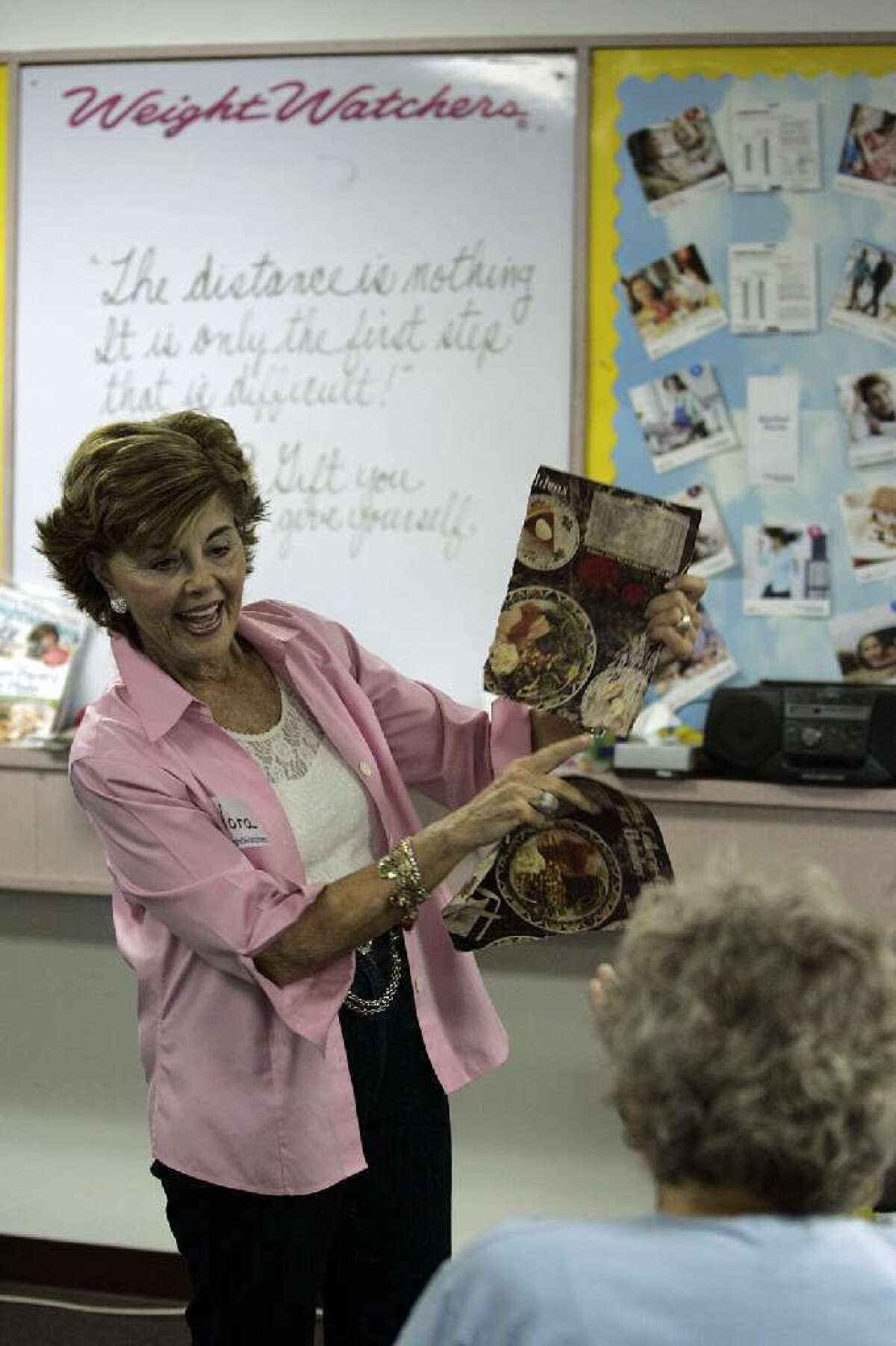Trying to lose weight? Don’t go it alone, study says

- Share via
For the 78 million American adults who are obese and may be ready to lose a significant amount of weight, a new study has some advice: Don’t go it alone.
The study was conducted with a grant from Weight Watchers International and carried out, in part, by weight management experts at Baylor College of Medicine. In a group of 292 participants, the roughly half who were enrolled in Weight Watchers were more than eight times likelier to lose 5% of their body weight over six months than were those who were sent on their weight-loss journey armed with a packet of printed materials on dietary and exercise guidelines for safe weight loss.
The Weight Watchers group was 8.8 times more likely than those assigned to the “go-it-alone” group to lose 10% of their body weight by the end of six months. At six months, the subjects who were randomly assigned to participate in Weight Watchers lost an average of 10.1 pounds; those sent home with self-help materials lost on average 1.3 pounds.
The research, published Tuesday in the American Journal of Medicine, might well be dismissed as a marketing ploy for the U.S. weight-loss giant. But its findings cast light on the complexity of behavior change on a scale necessary to lose “clinically significant” amounts of weight -- that is, enough weight to positively affect obesity-related conditions such as joint pain, high blood pressure and worsening metabolic function.
The study suggests that although it takes a variety of tools to inform, encourage and reward people trying to lose weight, there is no substitute for the power of social support of a group engaged in a common goal.
In a separate analysis of the weight loss achieved by those in the Weight Watchers group, researchers found that those who lost the most weight were the ones who most intensively used the resources provided by Weight Watchers--the meetings, the Web-based tools available on mobile devices and home computers, and the community message and discussion boards.
The single best predictor of which participants would lose the most weight, however, was attendance at group meetings, at which veteran Weight Watchers members, who have achieved and maintained a healthy body weight, lead a discussion about weight-loss skills. Among participants randomly assigned to the Weight Watchers group, those whose meeting attendance fell in the upper half of the range were 11.2 and 15.5 times more likely to lose 5% and 10% of their body weight at six months, respectively, than those whose meeting attendance fell in the bottom half of the group.
“It’s one of the harder changes people make in their lives, to lose weight, and we’re social animals,” said Baylor School of Medicine psychologist Craig A. Johnston, the lead author of the study. “Being around people who can encourage and reinforce you -- people who are talking about that challenge -- is going to help in terms of weight loss.”
But having a variety of tools to support one’s weight loss was important too.
Those who used all three Weight Watchers services over the six-month study period lost, on average, 19 pounds. Those who routinely used one or two of those resources lost on average 9.3 and 9.5 pounds, respectively.
As research evidence for its program’s effectiveness has mounted, Weight Watchers in recent years has bolstered its central component -- peer-led meetings -- with a wider range of weight-loss tools, including online community discussion boards, recipes, point counters and mobile apps. But the synergistic effects of those tools surprised even Karen Miller-Kovach, Weight Watchers International’s chief scientific officer.
“The inclination was to say, ‘Oh, that’s a meeting person, that’s an online person.’ But even if you could classify someone, they changed over time,” said Miller-Kovach.
While one participant might rely heavily on the organization’s online point counter and recipes in the first month or two, the group meetings and online discussion boards might become more important as one’s weight loss reached a plateau, said Miller-Kovach. Another participant might need the meetings to jump-start his or her resolve, but increase reliance on the organization’s online resources as he or she built up momentum, she added.
“Truly, weight loss is a journey, and how that person experiences it and what tool is most useful at what time changes,” said Miller-Kovach. “It’s important to check in with someone during that journey and to recognize that in giving them that tool belt, the tools that they’ll need along the road will vary” with time.
Read more:
Obese adults should get counseling, federal task force says
Rx for diabetes not pill, but will
AMA declares obesity a disease: The move by the American Medical Assn. board means that one-third of adults and 17% of children in the U.S. have a medical condition that requires treatment







